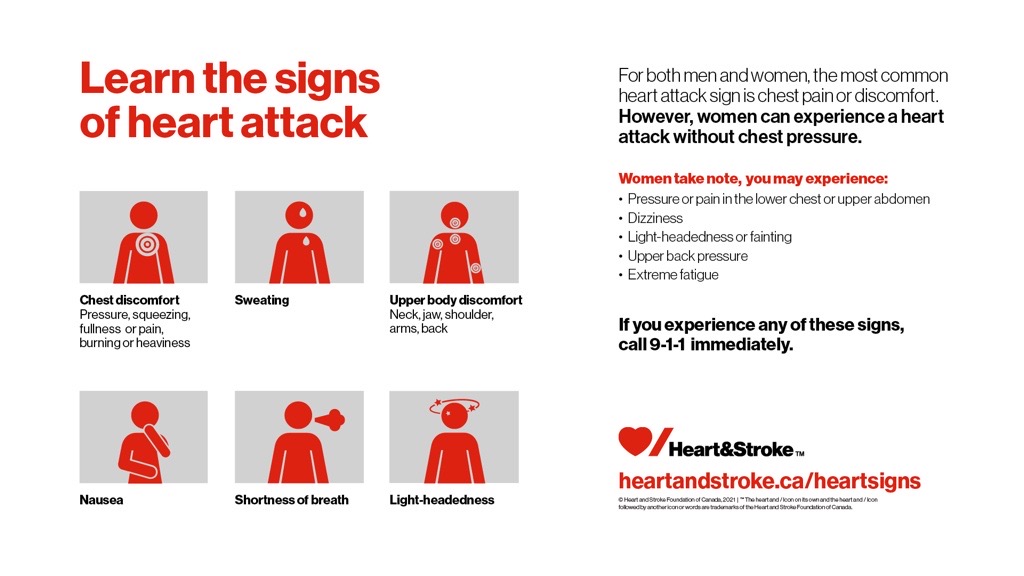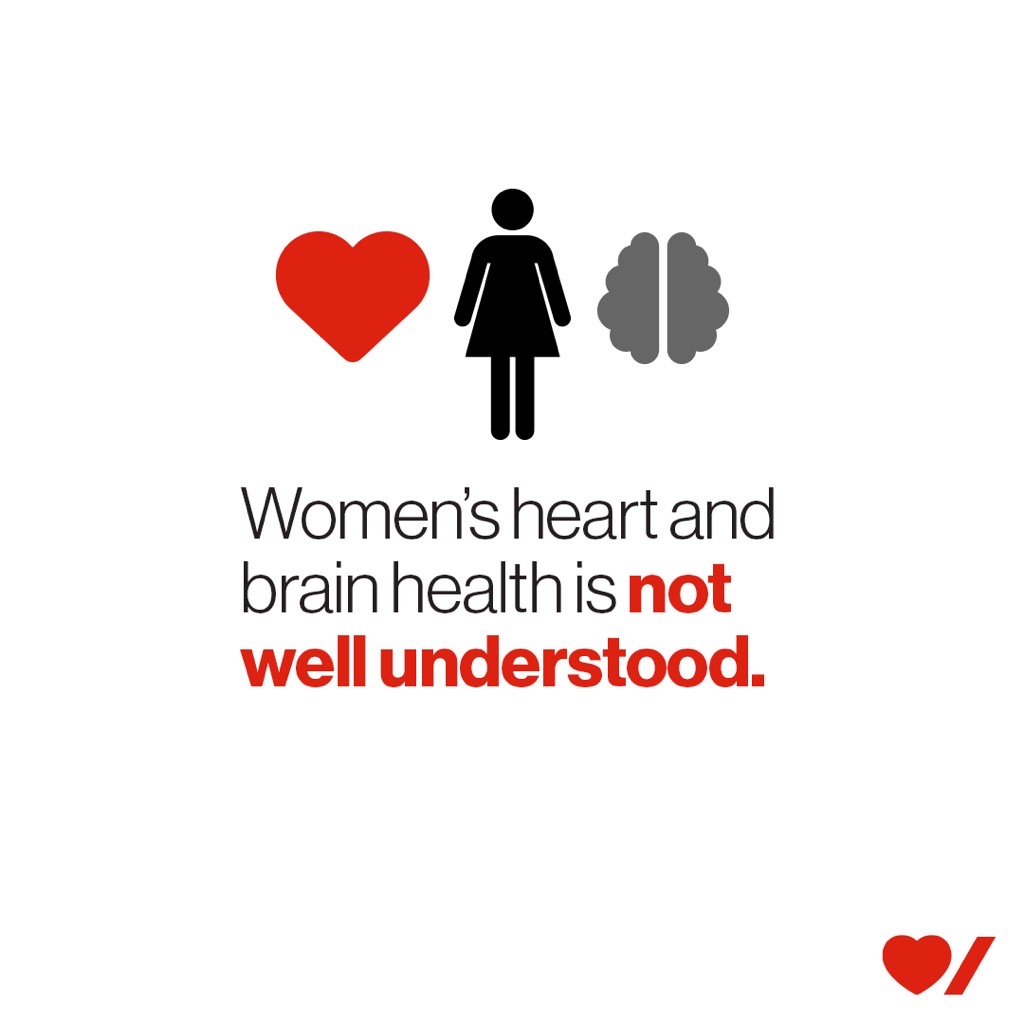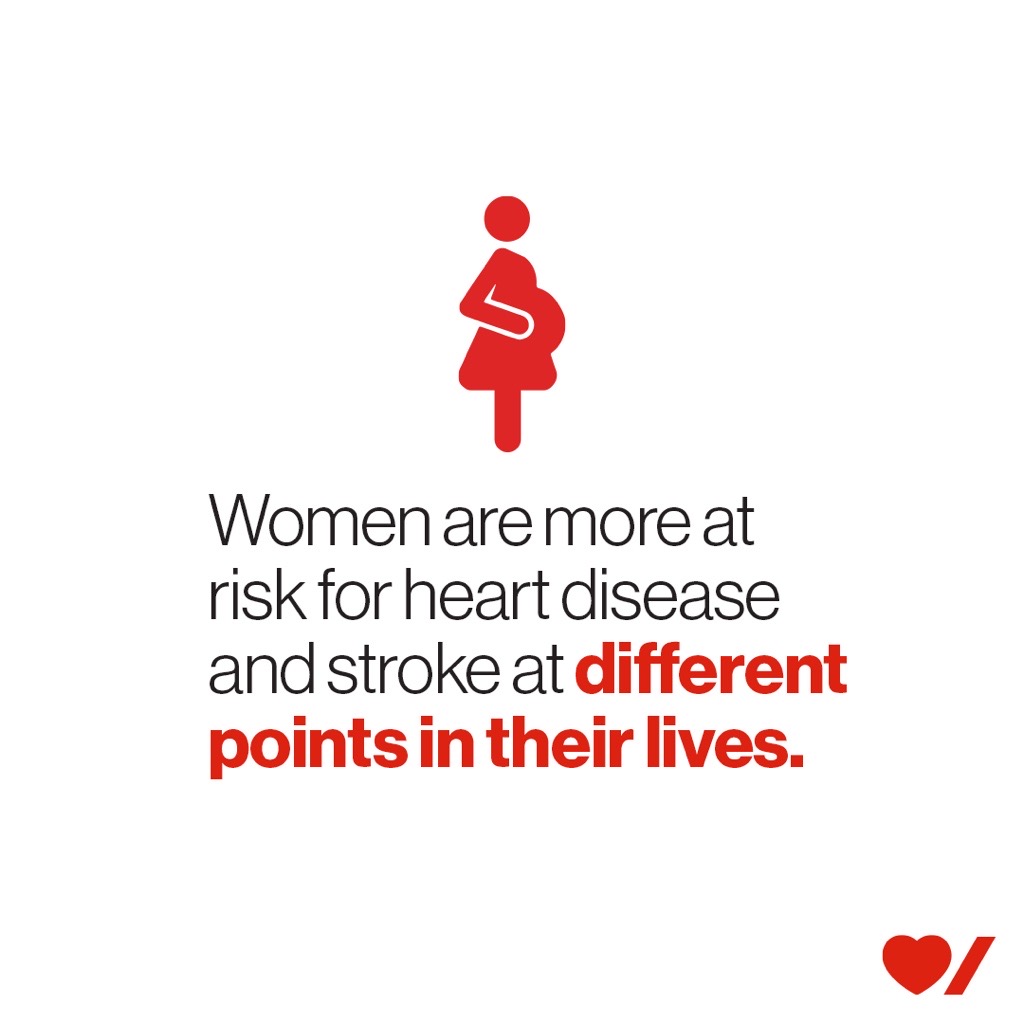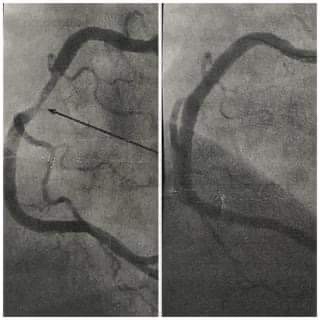Women at higher risk of heart disease than men due to systemic failures in health system: report
Posted February 1, 2023 5:17 pm.
Last Updated February 1, 2023 6:18 pm.
When Jessica Solomon began experiencing chest pain and nausea in October, she went to a hospital in Brandon, Man.
“After doing scans, and not really finding a cause, I was sent home,” recounted the 36-year-old.
But something told her things weren’t quite right. So she went back to the hospital.
It turns out, she almost died. She was suffering a massive heart attack, where 80 per cent of her right coronary artery was blocked.
“If I hadn’t come back, if I hadn’t trusted my gut and went back at 2 a.m., I wouldn’t have been alive because it was a very serious heart attack,” she said. “So if I had just forced myself to take medication and go to sleep, there was a very good chance that I wouldn’t have woken up.”
A new report from Heart and Stroke Foundation of Canada shows women’s heart and brain health is at a higher risk than men due to systemic failures within the health-care system.
“It was startling for me,” said Solomon. “You know it was something that could have even been missed.”
The report shows that a failing health-care system, and health-care inequities continue to leave women’s heart and brain health behind.
According to Heart and Stroke, women’s bodies are not the same as men’s, meaning women face distinct risk factors making them more susceptible to experience certain types of heart and brain conditions.
“Heart disease and stroke is the number one killer of women worldwide,” said Dr. Mahwash Saeed, a cardiologist and professor at the University of Manitoba.
Pregnancy and menopause are distinct risk factors for women. According to Heart and Stroke, women who experience strokes are at a higher risk of dying than men. And if they survive, women have worse outcomes.
Saeed says women accrue risk factors for heart disease and stroke at a more rapid rate when they get older.
“Often women present with symptoms that we don’t typically think are associated with heart disease or stroke, and as such, their symptoms are ignored, not taken seriously and worked up,” said Saeed.
In 2019, heart disease and stroke claimed the lives of 32,271 women in Canada, equating to one woman’s life every 16 minutes.



Solomon understands the health-care system is under a lot of stress, but she says it’s important to advocate for your own health.
“When you are a woman, when you are younger, when you are overweight, all of those things work against you in our health-care system and make it less likely that you are going to be taken seriously,” she said. “It’s really important, when you know that something is wrong, to not give in and make sure to push for the care you need.”
According to the latest Heart and Stroke national poll, nearly 40 per cent of Canadians do not know that heart disease and stroke are the leading cause of premature death in women.
Saeed says there is a lack of understanding around women’s health.
“It’s important to take care of yourself, and it’s really important to put yourself first sometimes. Putting yourself first means you will be around longer for those people you love and you are taking care of.”









